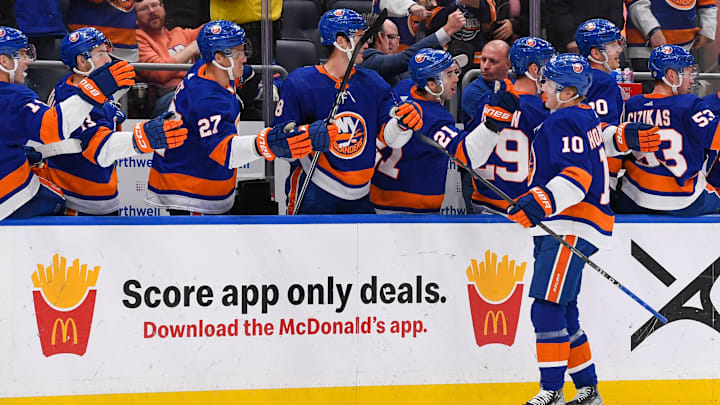Most of the eyes in the hockey-watching universe were on Seattle earlier this week as the Seattle Kraken hosted the Vegas Golden Knights for the 2024 Winter Classic.
North of the border saw the new Professional Women’s Hockey League, known as the PWHL, begin their inaugural season as the New York team shut out the Toronto Team 3-0.
The much-anticipated league also has a few interesting twists on traditional hockey rules. For example, they don’t follow the standard two points for a win, zero points for a regulation loss, and one point for an overtime/shootout loss the NHL has used since returning from the 2004-2005 lockout.
The PWHL differs by instead awarding three points for a regulation win and two for an overtime or shootout win with the rest remaining the same.
The NHL could take this new PWHL rule and run with it in their league
What caught our attention was their rule about shorthanded goals. If a team scores a shorthanded goal while their opponent is on the power play, then the power play immediately ends.
That’s the inverse of the current NHL rule where a power play will continue if a shorthanded goal is scored but ends if a power play goal is scored.
The NHL should consider doing the same for several reasons, but first and foremost it has the potential to add even more offense. The league has increasingly shifted to a “the more offense the better” mentality since emerging from the “dead puck” era from the 1990s up until the 2005 lockout.
The new rule gives added value to scoring in a situation where it previously wasn’t a priority. Shorthanded goals are somewhat of a rarity in the NHL and this allows them to be more commonplace.
Teams might change their entire penalty-kill strategy. Penalty killers might fall out of favor for true, two-way threats.
Perhaps coaches will start drawing up penalty kill units of three forwards and one defenseman as opposed to the widely used two-forward and two-defenseman model used now. Imagine seeing a shorthanded "Michigan goal"? That would go viral.
For all those traditionalists who think it changes the spirit of the power play too much, let’s remind you the NHL has already made pretty big changes to how power plays work in their history.
Before a 1956 rule change, power plays would continue and last the full two minutes in length even after a player on the team with a man advantage scored a goal. In other words, scoring the goal would not end a power play.
The rule change is widely believed to be in response to a storied hat trick Jean Beliveau had for the Montreal Canadiens against the Boston Bruins accomplished on one power play shift.
Much like the PWHL’s shorthanded goal rule, the 1956 rule change had been tried out in another league (the WHL) prior before being adopted in the NHL. If the NHL considers adopting the rule it would mean the PWHL had some degree of success with it.
Unlike the 1956 rule change, this would be seen as a way to limit another team’s success. The Edmonton Oilers had historic success on the power play last season and no one even entertained the thought.
Here’s another thought, would teams prepare for McDavid and company on the man advantage differently if they had a chance to end it early with the PWHL rule?
The PWHL’s first season is only a few days old. We can’t even begin to imagine if there would be pushback for a rule change like this in the NHL. It would likely be tested in the minor leagues first. Lynn Patrick, the Bruins general manager, said it best back in 1956:
There's always resistance to suggested rule changes but once they're adopted, the criticism stops because it becomes obvious they worked in an improvement. This new rule sounds like an “improvement” indeed.
